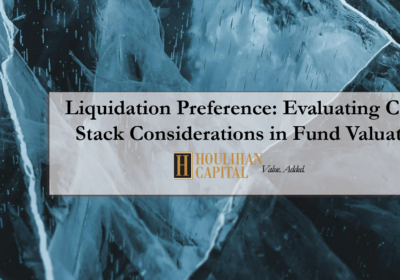Why You Need to Understand the Custody Rule
Seven years after the 2008 financial crisis, the full significance of the ensuing laws, rules and regulations is still being ascertained. One issue that has become prominent is compliance with Rule 206(4)-2 of the Investment Advisers Act of 1940, generally referred to as the custody rule.
Why is this critical?
The Securities and Exchange Commission (“SEC”) views the custody rule as one of the most critical sections of the Advisers Act, and it has allocated its investigation and enforcement resources accordingly. The SEC’s Office of Compliance Inspections and Examinations (“OCIE”) has twice in the last three years highlighted compliance with the custody rule in its published annual examination priorities; and in March 2013, the OCIE even published a “Risk Alert” explaining the high frequency of non-compliance with the custody rule, noting for good measure that “[d]eficiencies in this area have resulted in actions ranging from immediate remediation to enforcement referrals and subsequent litigation.”
The SEC may have understated the consequences of non-compliance. Violations of the custody rule have led to permanent barring of an investment adviser’s principal from the securities industry. In another case, an investment adviser agreed to pay a $15 million penalty in order to settle charges filed by the SEC that cited violations of custody provision of the Advisers Act among other transgressions. Lest you think the SEC is only interested in the fraud or other wrongdoing that is often uncovered after detection of violations of the custody rule, on October 29, 2014, the SEC announced charges against an investment advisory firm and three top officials solely for violating the custody rule. Registered investment advisers should take heed. In the words of the Director of the SEC’s New York Regional Office, “The custody rule is not a technicality.”
What is it?
The custody rule deems it a “fraudulent, deceptive or manipulative act, practice or course of business” for an SEC-registered investment adviser to have custody of client assets unless it complies with several requirements designed to create greater transparency and safeguard the assets from misappropriation or other misuse. An adviser has custody if it or a related person holds, directly or indirectly, client funds or securities, or has any authority to obtain possession of them, in connection with advisory services provided to clients. For example, the general partner (“GP”) of a private equity fund generally has custody of client assets. In brief, the custody rule requires an adviser to:
- Maintain client funds and securities at a qualified custodian such as an FDIC-insured bank, either in a separate account for each client under that client’s name or in an account containing only clients’ assets, under the adviser’s name as agent or trustee for the clients;
- Notify each client in writing of the qualified custodian’s name, address and the manner in which the client’s funds and securities are maintained;
- Have a reasonable basis, after due inquiry, for believing that the qualified custodian sends an account statement, at least quarterly, to each client (or limited partner or other beneficial owner in the case of a pooled investment vehicle);
- Engage an independent public accountant to verify client funds and securities at least once during each calendar year by a surprise examination.
There are additional protections when the adviser itself or a related person acts as the qualified custodian.
Are there exceptions?
The custody rule also provides several exceptions, most notably the so-called “audit exemption” that may be invoked by an adviser for a pooled investment vehicle. An adviser who claims the audit exemption does not have to comply with the account statement and notification requirements described, and further, is deemed in compliance with the annual surprise examinations requirement. The main tradeoff is that exempted advisers must assume responsibility for distribution of audited financial statements to all beneficial owners. For example, the aforementioned GP of a private equity fund would need to send audited financial statements to all limited partners within 120 days of the end of its fiscal year. Nonetheless, in most cases, it is beneficial for an adviser to claim the audit exemption if possible.
Why independence is crucial!
Whether or not an adviser is granted the audit exemption, the need for an independent public accountant cannot be circumvented – a fact that has been the source of much consternation for advisers and accounting firms alike. The definition of “independence” is quite restrictive and, in addition to prohibiting certain financial, employment and business relationships, actually precludes an adviser from using its chosen audit firm for most non-audit services.
Perhaps the lowest cost and highest return investment a registered investment adviser can make is ensuring the independence of its public accountant. One likely outcome of this review is that the adviser will need to assign non-audit services to a new firm. Advisers that rely on third-party valuation opinions from its accounting firm, for instance, will need to engage a new provider. As an independent, SOC-certified third-party valuation firm, Houlihan Capital has worked with many (including all of the large) accounting firms to provide third-party valuations in compliance with the custody rule.
Houlihan Capital is a leading, solutions‐driven valuation, financial advisory and boutique investment banking firm committed to delivering superior client value and thought leadership in an ever‐changing landscape. The firm has extensive experience in providing fairness and solvency opinions, and objective, independent and defensible opinions of value that meet accounting and regulatory requirements. Our clients include some of the largest asset managers around the world, and private equity funds, hedge fund advisors, fund administrators, and other asset management firms benefit from Houlihan Capital’s comprehensive valuation and financial advisory services. Houlihan Capital is SOC-compliant, a Financial Industry Regulatory Authority (FINRA) and SIPC member, and committed to the highest levels of professional ethics and standards.
For more information on independent third party valuation services, please visit www.houlihan.com or contact Paul Clark at 312‐450‐8656.


